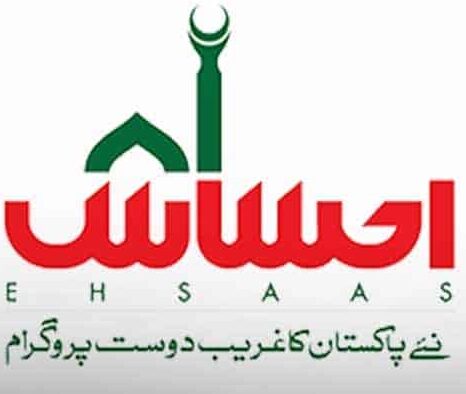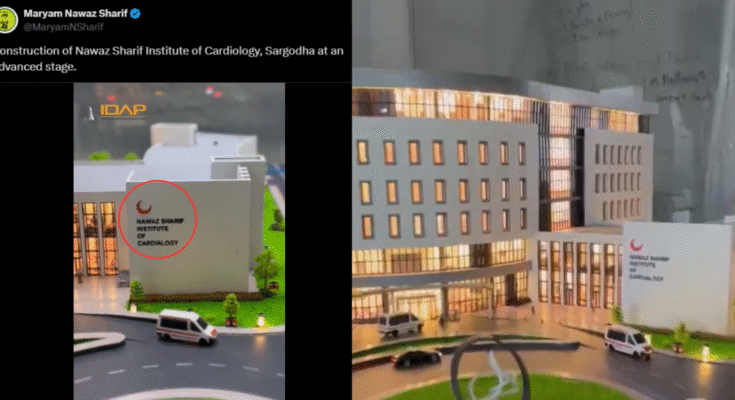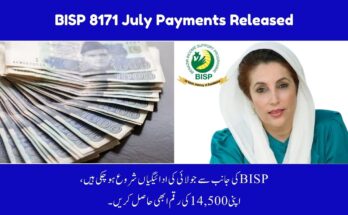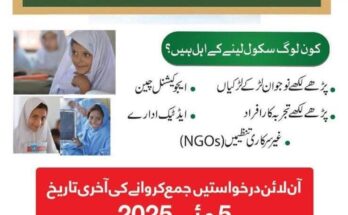Introduction
Punjab, Pakistan’s most populous province, has been undergoing a transformative journey under the leadership of Chief Minister Maryam Nawaz Sharif. Her administration has prioritized public welfare through innovative initiatives that address critical sectors like education and healthcare. Two flagship programs, the Chief Minister Education Card and the Nawaz Sharif Institute of Cardiology in Sargodha, exemplify this commitment to improving the lives of Punjab’s citizens. While the CM Education Card aims to empower students by providing financial support for higher education, the Nawaz Sharif Cardiology Hospital seeks to revolutionize cardiac care in the Sargodha Division, ensuring that world-class medical facilities are accessible locally. This article explores the objectives, implementation, and impact of these initiatives, highlighting their significance in fostering socio-economic development in Punjab.
The CM Education Card: Empowering the Youth of Punjab
Background and Objectives
Education is the cornerstone of progress, yet financial constraints often prevent talented students from pursuing higher studies. Recognizing this challenge, the Punjab government, under Chief Minister Maryam Nawaz Sharif, launched the CM Education Card as part of a broader vision to make education accessible and equitable. The program is designed to provide financial assistance to meritorious students from low-income families, enabling them to enroll in colleges, universities, and technical institutions across Punjab.
The primary objectives of the CM Education Card include:
- Reducing Financial Barriers: Covering tuition fees, books, and other educational expenses for deserving students.
- Promoting Higher Education: Encouraging enrollment in undergraduate, graduate, and vocational programs.
- Empowering Marginalized Communities: Prioritizing students from rural areas, minorities, and economically disadvantaged backgrounds.
- Building a Skilled Workforce: Equipping the youth with the knowledge and skills needed to contribute to Pakistan’s economy.
Implementation and Features
The CM Education Card is a targeted subsidy program that operates through a transparent and merit-based selection process. Key features of the initiative include:
- Eligibility Criteria: Students who have secured admission to recognized public or private institutions and belong to families with an income below a specified threshold are eligible. Academic performance is also considered to ensure that the aid reaches those with potential.
- Financial Support: The card provides up to PKR 50,000 annually (subject to revision based on funding) to cover tuition, examination fees, and other academic expenses. In some cases, stipends for accommodation and transportation are also included.
- Digital Integration: The program leverages technology for efficiency. Applications are submitted online via a dedicated portal, and funds are disbursed directly to educational institutions or students’ bank accounts, minimizing bureaucratic delays.
- Partnerships with Institutions: The Punjab government has collaborated with universities, colleges, and technical training centers to streamline the process and ensure that the funds are utilized effectively.
The initiative draws inspiration from similar programs like the Punjab Education Endowment Fund (PEEF), but its scope is broader, aiming to support a larger number of students across diverse disciplines. The government has allocated significant funds to sustain the program, with plans to expand its reach in the coming years.
Impact and Future Prospects
Since its inception, the CM Education Card has had a transformative impact on Punjab’s educational landscape. Thousands of students, particularly from rural areas like Sargodha, have benefited from the program, gaining access to quality education that was previously out of reach. The initiative has also contributed to reducing dropout rates at the higher secondary and tertiary levels, as financial support alleviates the pressure on families to prioritize early employment over education.
Moreover, the program has empowered women and marginalized communities by ensuring that a significant portion of the cards are allocated to female students and minorities. This focus on inclusivity aligns with the government’s broader goal of achieving gender parity and social equity in education.
Looking ahead, the Punjab government plans to introduce additional features, such as mentorship programs and career counseling, to complement the financial aid provided by the CM Education Card. By investing in the youth, the initiative is laying the foundation for a more educated, skilled, and prosperous Punjab.
Nawaz Sharif Institute of Cardiology, Sargodha: A Beacon of Healthcare Innovation
Background and Need
Cardiovascular diseases are among the leading causes of mortality in Pakistan, with millions requiring specialized treatment each year. However, access to advanced cardiac care has historically been concentrated in major cities like Lahore and Islamabad, forcing patients from rural areas to undertake long and costly journeys for treatment. The Sargodha Division, with a population exceeding 10 million, lacked a dedicated cardiology institute, leaving residents underserved and vulnerable.
To address this gap, Chief Minister Maryam Nawaz Sharif announced the establishment of the Nawaz Sharif Institute of Cardiology (NSIC) in Sargodha. The project, which began construction in July 2024, is a cornerstone of the government’s healthcare reform agenda, aiming to bring state-of-the-art medical facilities to the doorstep of the people.
Project Overview and Timeline
The NSIC Sargodha is being constructed on an 85-kanal plot adjacent to the Dr. Faisal Masood Teaching Hospital, with a budget of PKR 8.846 billion. The hospital is designed to be a comprehensive cardiac care facility, featuring approximately 200 beds and cutting-edge infrastructure. Key components include:
- Infrastructure: The hospital will consist of a basement, ground floor, and five additional floors, housing operation theaters, intensive care units (ICUs), coronary care units (CCUs), laboratories, and general wards.
- Advanced Technology: The facility will be equipped with UK-based technology, including modern catheterization labs (cath labs), diagnostic imaging systems, and surgical equipment.
- Specialized Services: In addition to adult cardiology, the hospital will have a dedicated Pediatric Emergency Department to address congenital heart diseases in children.
- Capacity: Once operational, the NSIC will serve over 10 million residents of the Sargodha Division, reducing the need for travel to distant cities for cardiac care.
The project is progressing rapidly, with the Outpatient Department (OPD) slated to open by June 30, 2025, and the full hospital expected to be completed by December 31, 2025. The demolition of the old, dilapidated DHQ hospital building was completed within 15 days of the project’s announcement, reflecting the government’s commitment to timely execution.
Recruitment and Staffing
To ensure the hospital operates at the highest standards, the Punjab government has initiated a merit-based recruitment process for the NSIC Sargodha. The Specialized Healthcare and Medical Education (SHC&ME) Department is overseeing the hiring of a Chief Executive Officer (CEO), professors, and other staff. Key appointments include:
- Two professors of cardiology
- Two professors of surgery
- One professor of medicine
The CEO and senior staff will be prohibited from private practice to ensure full dedication to the institute. The selection committee, headed by Health Minister Khawaja Salman Rafique and approved by the Chief Minister, will ensure transparency in the hiring process.
Impact on Healthcare Delivery
The NSIC Sargodha is poised to revolutionize healthcare in the region by:
- Improving Access: By providing local access to advanced cardiac care, the hospital will save lives and reduce the financial burden on families who previously had to travel for treatment.
- Enhancing Quality: The use of state-of-the-art equipment and highly trained staff will ensure that patients receive world-class care.
- Supporting Public Health: The hospital’s focus on training specialist doctors and appointing master trainers will strengthen the overall healthcare ecosystem in Punjab.
- Reducing Mortality: The availability of cath labs and emergency services will enable timely interventions, particularly for heart attack patients, who often succumb due to delays in reaching specialized facilities.
Recent posts on X reflect public enthusiasm for the project, with users sharing updates on the rapid construction progress and praising the Chief Minister’s vision for healthcare reform.
Challenges and Mitigation Strategies
While the NSIC Sargodha is a landmark initiative, it faces challenges such as:
- Timely Completion: Construction delays are a common issue in large-scale projects. To mitigate this, the Chief Minister has personally monitored progress and set strict deadlines.
- Staffing Shortages: Recruiting and retaining qualified cardiologists in a semi-rural area like Sargodha can be difficult. The government’s decision to offer competitive packages and ban private practice for senior staff aims to address this.
- Funding: The project’s substantial budget requires sustained financial support. The Punjab government has prioritized healthcare in its fiscal planning to ensure adequate funding.
Synergy Between Education and Healthcare
The CM Education Card and NSIC Sargodha are interconnected pillars of Punjab’s development strategy. By investing in education, the government is creating a pipeline of skilled professionals, including doctors and healthcare workers, who can staff facilities like the NSIC. Conversely, improved healthcare ensures that students and their families remain healthy, enabling them to focus on education and economic productivity. Together, these initiatives address the holistic needs of the population, fostering a cycle of empowerment and progress.
Conclusion
The CM Education Card and Nawaz Sharif Institute of Cardiology in Sargodha are transformative initiatives that reflect the Punjab government’s commitment to inclusive development. The Education Card is breaking financial barriers, enabling thousands of students to pursue their dreams, while the NSIC Sargodha is bringing world-class cardiac care to a region that has long been underserved. Under Chief Minister Maryam Nawaz Sharif’s leadership, these programs are not just policy measures but a vision for a healthier, more educated, and prosperous Punjab. As the OPD of the NSIC prepares to open in June 2025 and the Education Card continues to expand, the people of Sargodha and beyond stand to benefit from a brighter, more equitable future.




